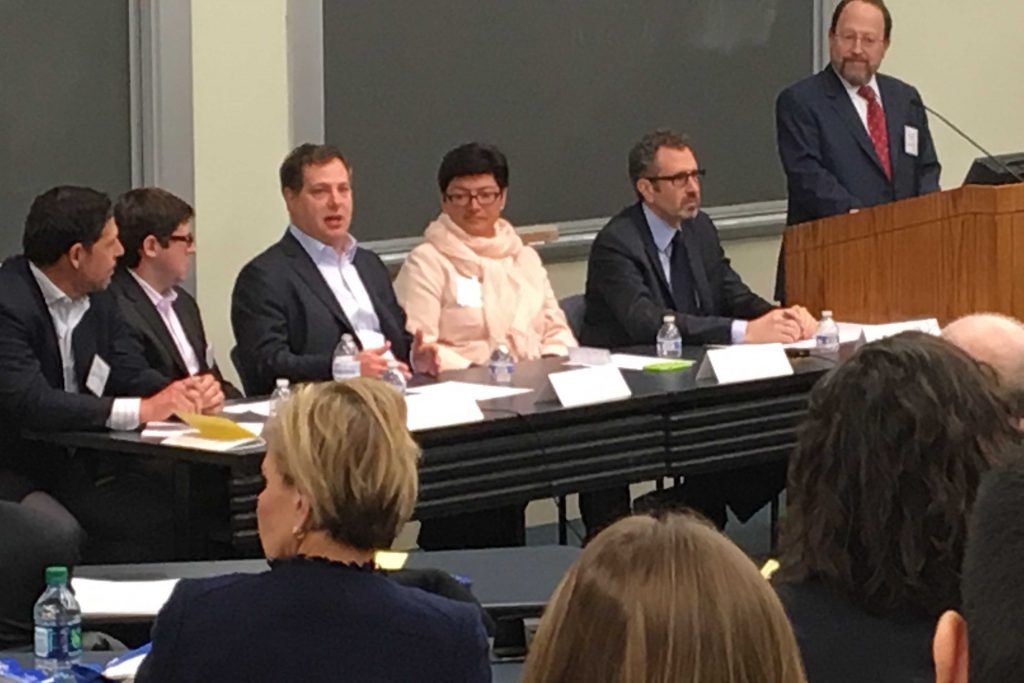More than a dozen of the nation’s top retail authorities—financial advisors, company CEO’s, investors, bankruptcy attorneys and judges—joined other industry professionals and law students in a packed Boston College Law School lecture hall March 31 to take a hard look at how consumer habits, internet shopping, and a slow-growth economy have challenged the traditional retail industry. Their focus? How these forces are affecting bankruptcy practice.
Sponsored by the First Circuit Fellows of the American College of Bankruptcy and BC Law, the symposium was divided into two panels, the first comprising retail business leaders, the second comprising individuals who have played key roles in recent bankruptcy cases.
Opinions on the health of retail ranged widely. In the business leaders’ panel, for example, Things Remembered Chairman and CEO Lisa Gavales predicted that malls and the shoppers who frequent them will not disappear, even as fellow panelist, Versa Capital Management CIO Paul Halpern, warned that bricks and mortar stores are going the way of newspapers, victims of technology and changing modes of American consumption.
Jacqueline Marcus of Weil Gotshal & Manges, a lead attorney representing teen retailer Aéropostale, spoke on the second panel, “Retail Issues in Bankruptcy Cases—Aéropostale and Its Implications for Future Retail Chapter 11 Cases.”
Aéropostale avoided a liquidation when a buyer emerged during the case that was funded, in part, by two of the landlords who had a significant lease exposure to the debtor. The panelists presented their views on how that case may, or may not, be a model for future retail cases. Among those providing perspective were the Hon. Sean Lane of the US Bankruptcy Court for the Southern District of New York and Michael A. O’Hara, founder and managing partner of Consensus Advisors, investment bankers to the consumer products and retail industries.
The American College of Bankruptcy (ACB) is an honorary public service association of bankruptcy and insolvency professionals. It is the largest financial supporter of bankruptcy and insolvency-related pro bono legal service programs in the United States.
Boston College Law School is a frequent host of the organization’s symposia under the aegis of Professor Ingrid Hillinger, a Fellow of the ACB.



